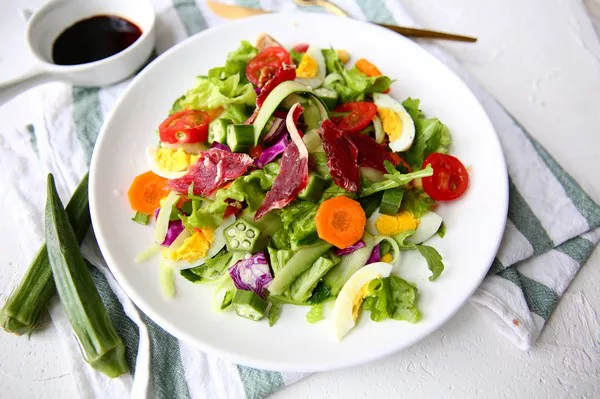Achieving a slim and toned physique is a common goal for many individuals, and reducing excess hip fat is often a top priority. While spot reduction is not possible, a balanced diet plays a crucial role in overall weight loss, including shedding unwanted hip fat. By incorporating specific foods into your daily meal plan, you can support your weight loss journey and achieve a leaner waistline. In this article, we will explore evidence-based dietary strategies that can help you lose hip fat effectively.
Understand the Science behind Hip Fat
Before diving into the dietary recommendations, it’s essential to understand the science behind hip fat. Hip fat, also known as subcutaneous fat, is stored beneath the skin and around the hip area. Its primary function is to provide insulation and cushioning for the body. However, excessive hip fat can be aesthetically displeasing and may increase the risk of certain health conditions.
The Role of a Calorie Deficit in Hip Fat Loss
Creating a calorie deficit is crucial for losing hip fat. When you consume fewer calories than your body needs, it taps into its fat stores, including those around the hips. However, it’s important to strike the right balance, as an excessively low-calorie diet can have adverse effects on your metabolism and overall health. Aim for a modest calorie deficit of 500-750 calories per day to promote healthy and sustainable weight loss.
Incorporate Lean Proteins for Satiety and Muscle Maintenance
Protein is an essential nutrient for weight loss, as it boosts metabolism, increases satiety, and helps preserve lean muscle mass. Include lean protein sources like chicken breast, fish, tofu, legumes, and low-fat dairy products in your meals. These foods not only aid in fat burning but also promote a feeling of fullness, reducing the likelihood of overeating.
Opt for Complex Carbohydrates for Energy and Sustained Fullness
When it comes to carbohydrates, it’s important to focus on complex sources that provide sustained energy and keep you feeling full for longer. Incorporate foods such as whole grains, legumes, fruits, and vegetables into your diet. These high-fiber options release glucose slowly into the bloodstream, preventing sudden spikes in blood sugar levels that can lead to fat storage.
Emphasize Healthy Fats for Nutrient Absorption and Hormonal Balance
Contrary to popular belief, not all fats are bad for you. Healthy fats are essential for optimal health, hormone production, and the absorption of fat-soluble vitamins. Include foods like avocados, nuts, seeds, olive oil, and fatty fish (such as salmon) in your diet. However, be mindful of portion sizes, as fats are calorie-dense.
Fill Up on Fiber for Digestive Health and Weight Management
Dietary fiber plays a vital role in weight loss and overall health. It adds bulk to your meals, promoting satiety and reducing overeating. Fiber also improves digestion, regulates blood sugar levels, and supports a healthy gut microbiome. Incorporate fiber-rich foods such as vegetables, fruits, whole grains, and legumes into your daily diet.
Stay Hydrated and Limit Sugary Beverages
Staying hydrated is crucial for overall health and weight management. Water can help curb appetite, flush out toxins, and promote optimal bodily functions. Replace sugary beverages like soda and juice with water, herbal tea, or infused water to reduce calorie intake.
Conclusion
Losing hip fat requires a holistic approach that combines a balanced diet, regular exercise, and healthy lifestyle habits. While it’s not possible to spot reduce fat in specific areas, incorporating the right foods into your diet can support overall weight loss and contribute to a slimmer waistline. Remember to create a modest calorie deficit, prioritize lean proteins, complex carbohydrates, healthy fats, and fiber-rich foods, while staying hydrated and limiting sugary beverages. It’s important to consult with a healthcare professional or registered dietitian before making significant changes to your diet, especially if you have any underlying health conditions. With dedication, consistency, and the right dietary choices, you can work towards achieving your goals of losing hip fat and improving your overall well-being.


